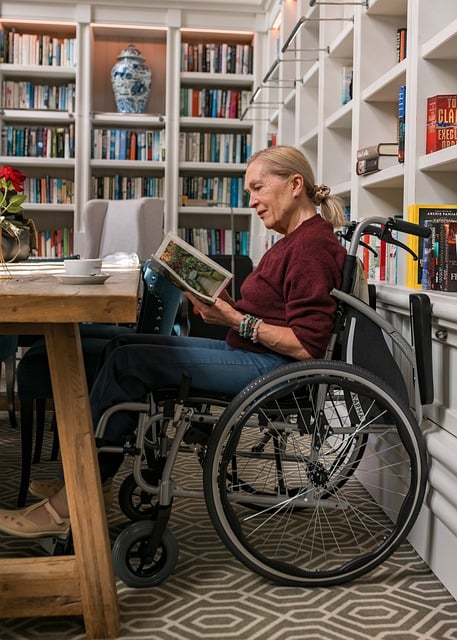Elderly Companion Services are a vital resource for families caring for aging relatives, providing essential relief from caregiving responsibilities. These services offer professional companionship, assistance with daily tasks, and transportation, allowing primary caregivers to take breaks and recharge while ensuring their loved ones receive personalized attention. By fostering independence, dignity, and meaningful interactions, Elderly Companion Services enhance the quality of life for older adults and prevent caregiver burnout. Open communication with healthcare professionals and building support networks through community groups further promote long-term well-being for both caregivers and the elderly.
“Caregiving relief is an essential aspect of maintaining family well-being, especially with the growing demand for support among elderly individuals. This article explores the critical role of Elderly Companion Services in providing respite and enhancing quality of life for both caregivers and seniors. We delve into the benefits, key roles, and strategic approaches to ensure long-term support systems are in place. By understanding these elements, families can navigate caregiving challenges effectively.”
- Understanding the Importance of Caregiving Relief for Families
- Exploring Elderly Companion Services: Benefits and Roles
- Strategies to Ensure Long-term Support for Caregivers and Elderly Individuals
Understanding the Importance of Caregiving Relief for Families

Caregiving relief is an essential aspect of supporting families with elderly loved ones, ensuring their well-being and fostering a healthier dynamic within the household. In today’s fast-paced world, it’s easy for caregivers to feel overwhelmed, leading to burnout and decreased quality of care. This is where Elderly Companion Services step in as a game-changer. These services provide much-needed support by offering companionship, assistance with daily tasks, and even transportation, allowing primary caregivers to take a break and recharge.
By utilizing Elderly Companion Services, families can navigate the challenges of caring for aging relatives more effectively. It’s a strategic approach to maintaining a balance between caregiving and personal life. With professional companions by their side, families can feel confident that their loved ones are in capable hands, receiving personalized attention and meaningful interactions while having the freedom to focus on other responsibilities and relationships.
Exploring Elderly Companion Services: Benefits and Roles

Exploring Elderly Companion Services offers a valuable support system for families providing caregiving relief. These services cater to the unique needs of older adults, enhancing their quality of life while alleviating the burden on family caregivers. By hiring professional companions, families can ensure their loved ones receive personalized attention and companionship in the comfort of their homes.
Elderly Companion Services provide a range of benefits, including social interaction, assistance with daily tasks, medication management, and transportation. Companions are trained to offer emotional support, engage in meaningful conversations, and encourage active lifestyles. Their roles extend beyond basic assistance; they become trusted friends, fostering a sense of independence and dignity for the elderly while providing much-needed respite for caregivers.
Strategies to Ensure Long-term Support for Caregivers and Elderly Individuals

Caregiving can be a demanding and prolonged commitment, especially for families taking care of their elderly loved ones. To ensure long-term support, it’s crucial to implement strategies that balance the needs of both caregivers and the elderly individuals. One effective approach is to leverage Elderly Companion Services. These professional services provide companionship, assistance with daily tasks, and even transportation, allowing primary caregivers to take breaks and recharge. By reducing their workload, caregivers can maintain better physical and mental health, which is essential for sustained caregiving.
Additionally, building a support network is vital. Caregivers should connect with local community groups, religious organizations, or online forums dedicated to caregiving. Sharing experiences and resources within these networks can alleviate stress and offer practical advice. Moreover, encouraging open communication between the elderly individual and healthcare professionals ensures that any changing needs are promptly addressed. Regular check-ins and assessments by healthcare providers can help in adjusting care plans accordingly, ensuring both parties receive the best possible care over the long term.
Caregiving relief is an essential strategy to ensure the well-being of both caregivers and elderly individuals. By leveraging Elderly Companion Services, families can access professional support that enhances quality of life for the seniors while providing much-needed breaks for their dedicated caregivers. Implementing long-term strategies, as discussed in this article, will contribute to a more sustainable caregiving environment, fostering stronger family bonds despite the challenges posed by caring for an aging population.
